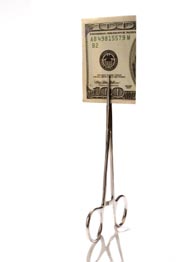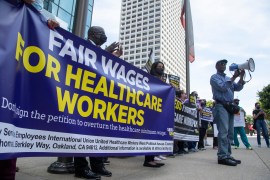Which physicians are driving up the nation’s health care costs the most?
That’s the question that researchers at the RAND Corporation, a nonprofit research organization, aimed to answer.
 Their new study, published in this month’s edition of Health Affairs, found that doctors with less experience spend more money treating patients than their veteran colleagues.
Their new study, published in this month’s edition of Health Affairs, found that doctors with less experience spend more money treating patients than their veteran colleagues.
“We found that as physicians’ experience increases, costs steadily go down,” said Dr. Ateev Mehrotra, the study’s lead author.
Mehrotra and his colleagues identified the costliest doctors by using insurance claims to create cost profiles of physicians’ uses of their resources to compare the health spending of more than 12,000 physicians in Massachusetts.
They found that physicians with less than 10 years of experience had 13.2 percent higher overall costs than physicians with 40 or more years of practice. This difference dwindled for physicians with 20 and 30 years of experience.
The findings actually came as a surprise to Mehrotra, who said he originally suspected physicians working in smaller medical practices and those with previous malpractice claims to be the biggest spenders when it comes to health care.
“I came into the study thinking that I would find something different,” he said.
As it turns out, there was no link between these factors and doctors’ cost patterns. But the findings do have important implications, especially for newly trained doctors. As Medicare and private health plans seek to reward physicians who deliver quality care at lower cost, some physicians may be at a disadvantage.
According to Mehrotra, less experienced physicians may potentially be excluded from private insurance networks that take a doctor’s practice patterns into account. These physicians might also receive lower Medicare reimbursements once the new value-based payment modifier program, which will shift Medicare’s traditional fee-for-service plan to a pay-per-performance model, takes effect in 2017. “There’s going to be some systematic losers–the [less-experienced] physicians,” he added.
Although their research did not pinpoint an exact motive, Mehrotra and his colleagues believe there are a number of possible explanations. Less experienced physicians, compared with their veteran peers, may be treating sicker and more complex patients. They also acknowledged the possibility that newly trained physicians may be more familiar with newer and more expensive treatments.
“One of the biggest societal problems we face is medical spending. … Physicians need to be conscious of spending in practice,” Mehrotra said.






